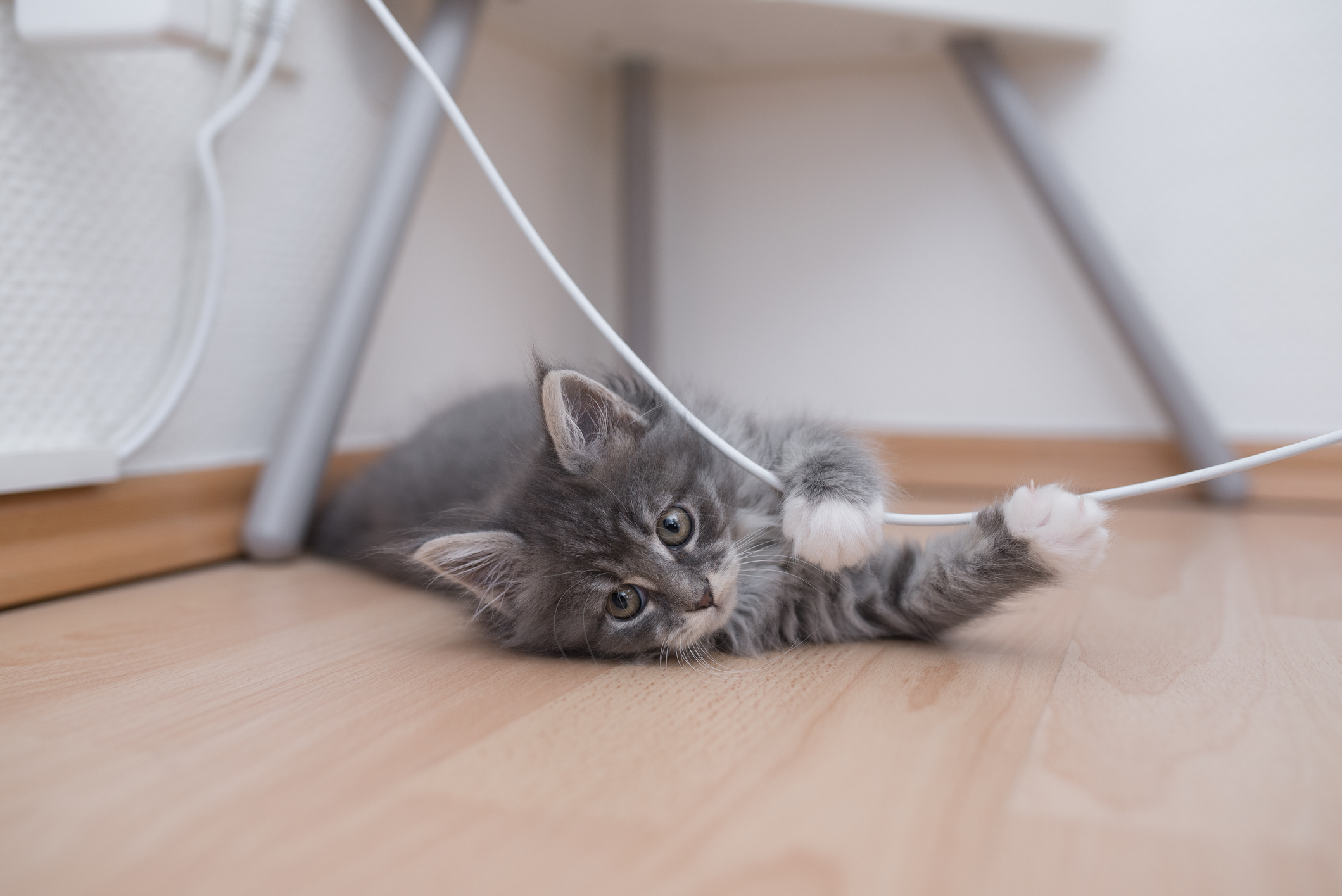
6 Mistakes to Avoid as a New Pet Parent
Getting a new pet is extremely exciting, especially if this is the first pet that you’ll call your own. Unfortunately, raising a pet can be challenging at times, and many new pet owners make mistakes they might regret later.
If you’re getting ready to adopt an adorable cat or dog, you’ll want to make sure you’re prepared—both with the physical items your pet will need and with the knowledge of how to care for a pet successfully. To protect your pet’s health and safety, your home and your wallet, keep these six new pet parent mistakes in mind and try to avoid them!

- Not researching ahead of time: Pet parenthood is not something that should be started on a whim. There are lots of things to consider before finalizing an adoption, from whether or not pets are allowed in your home to how much time you’ll have to care for an animal to whether pet-related expenses fit in your budget. If you’re adopting a dog, you’ll also want to research what breeds are best suited for your family and lifestyle. Not taking the time to do this research could be a big mistake for a number of reasons. New pet parents should be absolutely sure of their decision before adopting.
- Forgetting to pet-proof your home: You’ve picked out your pet’s new crate, food bowls, comfort items and all sorts of toys, and you’re ready to bring them home…or are you? In their excitement, many pet parents forget to pet-proof their homes! This means that when your excited puppy or kitten gets settled, there might be any number of things they can get into—some of which are very dangerous for their health. Before your pet is allowed access to your home, make sure you comb each room for dangerous items like toxic plants and small objects, hide chewable items like shoes and electrical cords and take steps to protect your furniture from claws or puppy teeth.
- Skipping vet appointments: After your new pet comes home from the shelter, it’s advised that you schedule an appointment with their new vet. Unfortunately, too many pet parents skip this step, thinking a visit isn’t necessary until their pet is visibly sick. Skipping this first vet visit could actually be dangerous to your pet’s health, though. On their first visit, your pet will receive a thorough examination, and the vet can check for signs of shelter-borne illnesses. If your pet has not been spayed or neutered or has not received vaccinations, your vet will typically recommend these procedures, as well. Establishing a baseline for your pet’s health and ensuring they get vaccinated can help them stay healthy as they age. After your pet’s first visit, they should also go in for an annual checkup for preventative care.
- Feeding too much: Feeding a pet way too much is a very common mistake new parents make. While it’s tempting to dump a bunch of food in your pet’s bowl and let them eat as they like throughout the day, this could lead to your pet eating too many calories on a daily basis. Over time, overfeeding can cause health problems like obesity and diabetes in both cats and dogs. It’s best to consult your veterinarian on how much your pet should be fed each day and stick to that.
- Not training early: When your pet is acting cute and funny, it can be tough to say no and establish boundaries or commands. Unfortunately, things like, “He can cuddle on the couch this one time!” can quickly turn into a bad habit that pet owners regret later. If you want to establish rules for your pet and/or train them to follow certain commands, start enforcing them as soon as you bring them home. Allowing them to act in a certain way for a while, then suddenly trying to train them to not do the thing they’re used to could confuse your pet. And, failing to curb certain behaviors in an energetic young pet could lead to destructive or inappropriate behavior later on.
- Forgetting about identification: You bring your pet home, you give them a name, and you get ready to share a loving life with them, but have you thought about getting your pet identification? Many new pet parents don’t, and they’re faced with terror later when their pet slips away from them and aren’t able to be found. At a minimum, pets—especially ones that go outside—should have a collar with an ID tag that provides your contact information. This ensures that someone who finds your pet can reconnect you. Microchipping your pet is also a great idea because it makes it easier for pets to be reunited with their owners if they’re turned into a shelter.

It’s not uncommon for new pet parents to make mistakes when raising their first pet. But, by being aware of them, you can avoid making these common mistakes and raise your pet more easily and happily!


